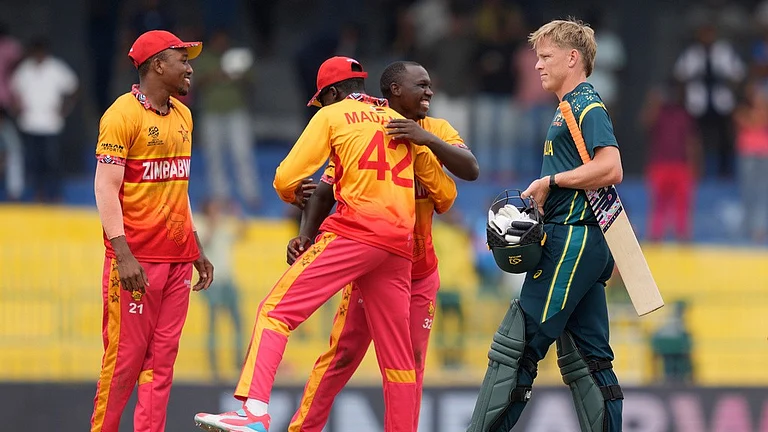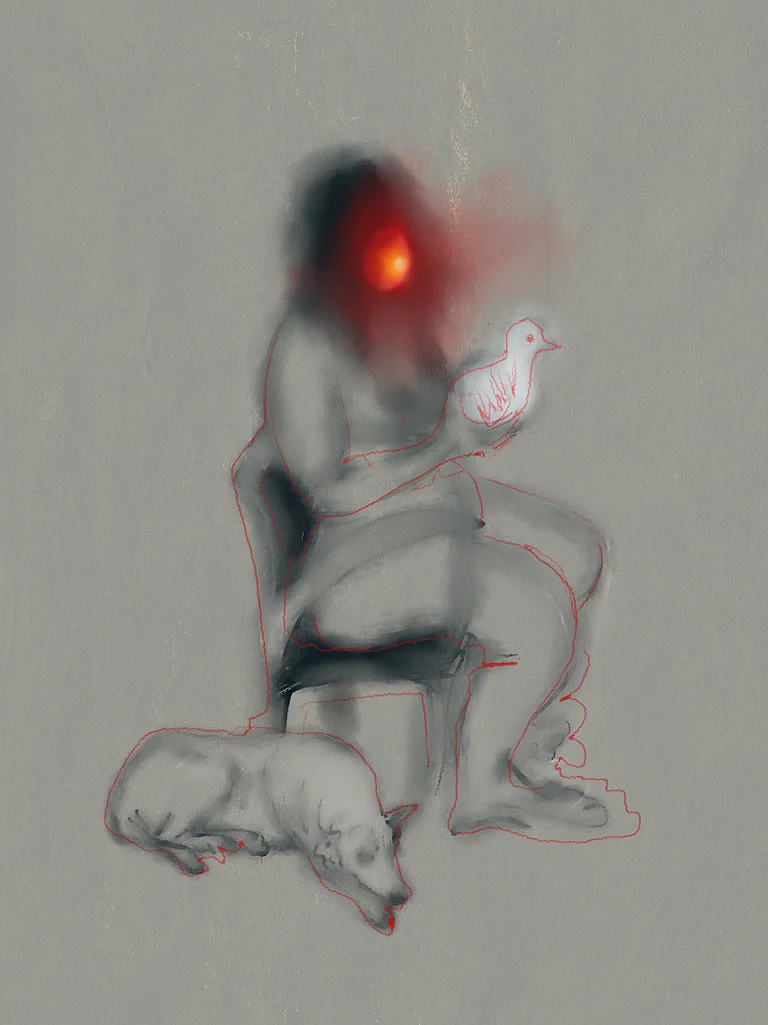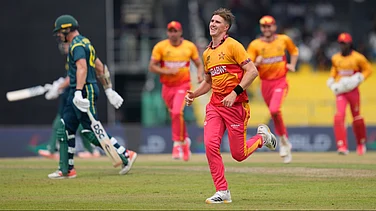“There are no atheists in a foxhole.” I am not sure who said this to me during a Formula One weekend in Europe. It might have been Michael Schumacher, then not yet world champion or winner of a record 91 races. He was already being hailed as successor to the great Ayrton Senna, who had been killed in a crash earlier that season.
Faith—not necessarily religious—is an important element in a sportsman’s kit bag. It reduces anxiety and boosts self-confidence. You don’t have to be a book-thumping member of a religious group to believe in a greater power. Current world champion Lewis Hamilton has said, “God has his hand over me.” It is enough to believe. Faith asks no questions.
Senna himself had a pragmatic way of looking at it, though. “Because I believe in god and have faith in god, it doesn’t mean I am immortal. It doesn’t mean I am immune, as has been claimed. I am as scared as anyone of getting hurt, especially driving a Formula One car.”
Formula One would be in anyone’s list as a ‘dangerous’ sport, as any sport which involves speeds of over 300kmph must be, regardless of the safety precautions which have saved lives.
But all competitive sports are potentially dangerous. Boxing, cricket, ice hockey, American football, rugby, basketball, cycling, gymnastics, athletics have all recorded deaths on the field. But that alone isn’t what makes sportsmen turn to god while performing. Often, like the rest of us, they turn to god for favours too.
Sachin Tendulkar has confessed in his autobiography that he didn’t see Mahendra Dhoni’s final six which won the World Cup for India in 2011 because he was busy praying in the dressing room. “I wasn’t asking god to help us win,” he writes. “All I wanted was that god should do what was best for us, for Indian cricket and for the Indian cricket team.” God easily decoded that fence-sitting entreaty.
“There are certain things which the almighty controls and we can only go out and give our best,” said Tendulkar later, “Faith has given me inner strength, it has given a new dimension to my life.”
Sportsmen, with exceptions, do not like to emphasise either their faith or lack of it. Asked a question specifically in a Times of India interview, Virat Kohli said, “I have not been bound by any religion. I openly embrace all religions. I believe everyone is spiritual.”
The two best known atheists among sportspeople are probably the disgraced cyclist Lance Armstrong and tennis star Rafael Nadal. In an interview to Sports Illustrated, Nadal said, “If god exists, you don’t need to cross yourself or pray. If god exists, he’s intelligent enough to do the important things, the right things.”
Perhaps when sportsmen use the words ‘faith’ or ‘god’, they mean something entirely different.
Without articulating it in so many words, players go into competition having put their faith in their training methods, their experience, their confidence to change tack when necessary, their self-belief, their ability to focus, even their selfishness which ensures that all distractions are avoided.
The faith in something outside of themselves is necessary too—not god, but certainly in the coach, trainer and the efficacy of their methods. Sometimes players outgrow their coaches and need to find someone who can make a difference at a higher level. India’s ace hurdler P.T. Usha, who narrowly missed a bronze at the 1984 Olympics, is a good example. Her coach O.M. Nambiar was important in the early years, giving her confidence and ensuring high comfort levels. But as she peaked, she needed a sounder technical person (after her Olympic run, Edwin Moses, who won the men’s gold in the same event, 400m hurdles, pointed out that Usha needed to change the number of strides between hurdles). But Usha’s faith in Nambiar couldn’t be shaken. And Nambiar wasn’t able to read the signs himself. Comfort level won out over technical advancement.
Footballers have to have faith in their team coaches. Tactics are often worked out off the pitch than during a game, and there is much to be said for letting the coach’s vision call the play. Sometimes it goes wrong in the right way. I remember an Uruguayan coach during the Nehru Cup in India saying, “You know, sometimes when I see the boys play, I can’t tell what they are leading up to. We plan something during team talks, and then the players go do something else without consultation. They surprise me, but they come out victorious.” This was a case of faith in the reverse direction. The coach being confident that whatever happened, the players had the instinct and skill to dominate.

Sachin had a full repertoire of shots and an awesome record; he says faith gave a new dimension to his life.
Now consider this: In the 1970s and ’80s, Sunil Gavaskar opened the batting for India, without a helmet for the most part, and against some of the fastest and most dangerous bowlers to have played the game. He played 125 Tests (214 innings) over 16 years, or an average of eight Tests a year. Assuming he batted on at least two-and-a-half days every Test, he was in serious danger of being hit on the head on 20 days annually. Some measure of the greatness of the opening batsman can be gleaned from the fact that he got hit just once in all this time.
That was owing to a combination of skill and luck, of mastery over batting technique and good fortune. Skill kept him safe, but luck played a role too.
Sportsmen do not like to speak of luck, except in a cursory sort of way, as when they wish one another “good luck” at the start of a game. Geoff Boycott believed that successful sportspeople made their own luck—this having been the prevailing philosophy for many decades. It was macho, it was manly, it chimed with the idea of muscular Christianity in 19th century England where the rules of sport were codified and schoolboys were taught the concept.
Yet, sportsmen recognise the importance of luck. A diving catcher at slip can break a finger and be out of action for a crucial period. India player Raman Lamba died when hit by a ball while fielding at short leg; Australian batsman Phil Hughes was struck on the neck while batting and died. In either case, if the ball had hit inches away, they would have survived.
Injury is a sportsman’s unwelcome guest, but often he can do little about its visit except hope that he gets lucky and avoids anything serious or career-threatening. “Luck is that which is beyond my control,” the English cricketer and selector Ed Smith wrote in his book on the subject.
In sport, as in life, the race is not to the swift nor the battle to the strong. This is partly because of luck—the weaker team winning on a self-goal by the stronger, an accident on the track, a gymnast slipping and injuring herself and so on. Luck is that entity which causes upsets, or ensures the better team wins, or alters the course of a match.
Napoleon has been quoted as saying, “I know he is a good general, but is he lucky?” Even the most skilful of players needs a modicum of luck; even the luckiest players must have some skill—each by itself is incomplete.
The sportsman’s faith is invested in the people around him; luck is his god.
(Suresh Menon is editor, Wisden India Almanack. Views are personal.)


























